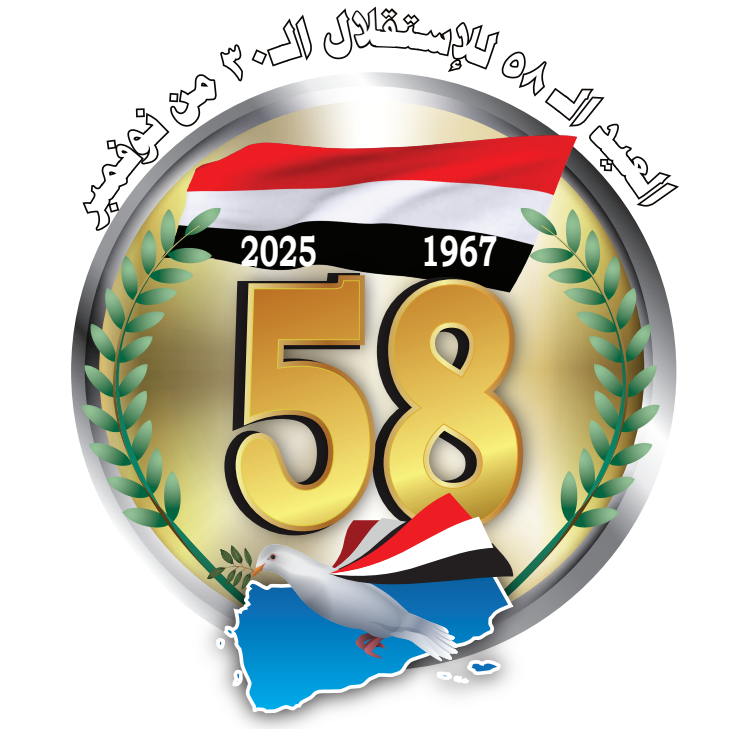
Aden Governor Discusses Progress of Projects Implemented by Kuwaiti Direct Aid Society
Minister of State, the Governor of Aden Abdulrahman Sheikh discussed Monday with the representative of the Direct Aid Society Engineer Mohammed al-Tam interventions across several sectors, particularly water sector projects in Aden.

Casualty Toll from Israeli Offensive on Gaza Rises to 72,070 Martyrs, 171,738 Injured
The casualty toll from the Israeli occupation’s offensive on the Gaza Strip since October 7, 2023, has risen to 72,070 martyrs and 171,738 injured, according to the Ministry of Health in Gaza.

Korea large companies' exports rise 10 percent
Large companies' exports in South Korea rose approximately 10 percent year-on-year in the fourth quarter of last year, driven by increased global demand for semiconductors.

Saudi League: Al-Nassr, Al-Ettifaq and Neom Secure Victories Over Al-Ittihad, Damac and Al-Riyadh
Al-Nassr defeated its guest Al-Ittihad 2–0 in the match that brought them together at Al-Awwal Park Stadium in Riyadh, as part of the 21st round of the Saudi Professional League.
Last Update: ،
2026/02/24
Time
06:27:04
Latest News:
 Minister of Higher Education Discusses Preparations for First International Conference on Digital Transformation ..
Minister of Higher Education Discusses Preparations for First International Conference on Digital Transformation ..
 Minister of Human Rights discusses with Civic Center coordination to protect civilians
Minister of Human Rights discusses with Civic Center coordination to protect civilians
 "MASAM" removes 2676 of Houthis-laid landmines, UXO in a week
"MASAM" removes 2676 of Houthis-laid landmines, UXO in a week
 Minister of Defense chairs meeting with senior military officials, commanders in Aden
Minister of Defense chairs meeting with senior military officials, commanders in Aden
 Yemen-Indonesia Discuss Parliamentary Ties
Yemen-Indonesia Discuss Parliamentary Ties
Latest News:
 Minister of Higher Education Discusses Preparations for First International Conference on Digital Transformation ..
Minister of Higher Education Discusses Preparations for First International Conference on Digital Transformation ..
 Minister of Human Rights discusses with Civic Center coordination to protect civilians
Minister of Human Rights discusses with Civic Center coordination to protect civilians
 "MASAM" removes 2676 of Houthis-laid landmines, UXO in a week
"MASAM" removes 2676 of Houthis-laid landmines, UXO in a week
 Minister of Defense chairs meeting with senior military officials, commanders in Aden
Minister of Defense chairs meeting with senior military officials, commanders in Aden
 Yemen-Indonesia Discuss Parliamentary Ties
Yemen-Indonesia Discuss Parliamentary Ties
CBY: Floating exchange rate a correction measure not new policy
[16/08/2017 07:47]
ADEN-SABA
Deputy Governor of the Central Bank of Yemen (CBY) Abbas Al-Basha has said that the CBY's new decision for a floating exchange rate is a correction of the current currency exchange status not a transition to new exchange rate policy.
In a press statement, Al-Basha said: "The decision, would make the conditions conducive for launching the reconstruction program with support of donors led by Saudi Arabia."
He added: "The exchange rate policy in the Republic of Yemen is basically based on the floatation since 1996, and not on the fixation by tying (the Yemeni Rial) to another currency or to a free currencies basket. (This is) based on the economic and financial reform program, and the plurality of exchange rates in the cash market."
He said this correction will contribute to attracting grants and other revenues in foreign currency, mainly the grant programs to be launched by the World Bank and other donors soon; e.g.
the Social Welfare Fund's cash transfer program, the commodity imports support portfolio and relief fund as well as some public health and education programs."
He noted that it is well known in the world of exchange rate management that flotation is a regime in which a currency's value is allowed to fluctuate in response to foreign-exchange market mechanisms of supply and demand."
He pointed out that the CBY's previous bulletins on the official exchange rate reflected the market price. There was no significant difference between the official price and the market price, because the CBY possessed enough foreign cash reserves.
But when the Central Bank realized in March 2016 that the reserves were about to run out, It decided to halt its fixation intervention and limited itself to subsidizing only the price of wheat and rice."
Key words:
reconstruction - SABA Deputy - intervention - subsidizing - significant - contribute - mechanisms - difference - currencies - transition - Minister of Higher Education Discusses Preparations for First International Conference on Digital Transformation
Minister of Higher Education Discusses Preparations for First International Conference on Digital Transformation  Minister of Human Rights discusses with Civic Center coordination to protect civilians
Minister of Human Rights discusses with Civic Center coordination to protect civilians "MASAM" removes 2676 of Houthis-laid landmines, UXO in a week
"MASAM" removes 2676 of Houthis-laid landmines, UXO in a week  Yemen-Syria Discuss Economic Cooperation
Yemen-Syria Discuss Economic Cooperation Yemen Supports Kuwait's Sovereignty Over its Maritime Areas and Elevations
Yemen Supports Kuwait's Sovereignty Over its Maritime Areas and Elevations Presidential Leadership Council Affirms Full Support for Government's Program, Praises Saudi Efforts
Presidential Leadership Council Affirms Full Support for Government's Program, Praises Saudi Efforts  Minister of Defense convenes meeting of his assistants, heads of military agencies
Minister of Defense convenes meeting of his assistants, heads of military agencies Yemen condemns statements of U.S. Ambassador to Israel
Yemen condemns statements of U.S. Ambassador to Israel Al-Wadiah Port Security foils attempt to smuggle thousands of Captagon pills
Al-Wadiah Port Security foils attempt to smuggle thousands of Captagon pills Yemeni Leadership Condemns Attempts to Disrupt State Institutions and Vows to Maintain Order
Yemeni Leadership Condemns Attempts to Disrupt State Institutions and Vows to Maintain Order


